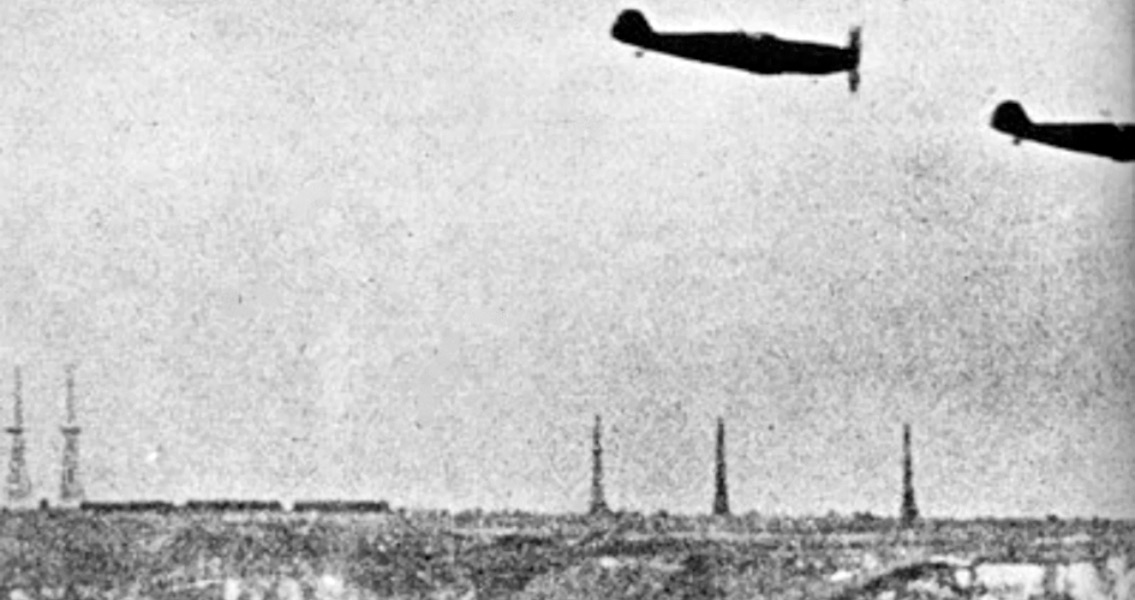<![CDATA[The 24th July marks the 75th Anniversary of the start of the Battle of Britain. A vitally important engagement at a crucial stage of the Second World War, and the first major battle in history to be fought entirely in the skies, the Battle of Britain has since become celebrated as one of the most poignant triumphs in Britain's recent history. From the 24th July until the Autumn, the British Royal Air Force (RAF) and German Luftwaffe were locked in an almost constant battle over Southern England. The Battle of Britain is generally used to refer to a campaign by the Luftwaffe to pummel the RAF into submission to gain control of the skies. By the summer of 1940, Britain found itself standing alone against the Axis powers. The United States continued to pursue a policy of isolationism in terms of foreign policy. Although financial aid and weapons were sent to Britain to assist its fight against the Nazis, direct military intervention by the USA was a long way off. Similarly, the Soviet Union had signed a non-aggression pact with Germany, illegally dividing up Eastern Europe and postponing the seemingly inevitable war between the two powers. France, Britain's closest ally politically and geographically, had fallen along with Belgium and the Netherlands earlier in 1940. Great Britain found itself the next target of the German war machine, with only the English Channel separating it from the Nazi forces. The week before 24th July the Nazi Party had made overtures to Britain suing for peace, but the British government refused to negotiate. As such the German military set about implementing 'Operation Sealion' - the planned invasion of Great Britain. Realising that the 'Blitzkrieg' (lightening war) tactics which had proved so successful in defeating most of Western Europe would not work due to the strength of the British Navy, the German High Command initiated a plan to destroy the RAF, so they could gain control of the English channel in preparation for a land invasion. On 24th July, German Heinkel Bombers launched an attack on a British sea convoy in the Thames Estuary, leading to the first major engagement of the Battle of Britain. A force of British Spitfire and Hurricane planes were scrambled to intercept the attack, and a spectacular aerial dogfight played out over the south-east of England. Over the following months the Luftwaffe repeatedly launched raids which aimed to destroy the RAF. As well as luring British fighter planes into combat by attacking shipping in the Channel, the Luftwaffe attacked RAF airfields, aircraft factories, and radar installations with the hope of crippling Britain's aerial defences. Now celebrated as a victory for the underdog, due to the superior numbers of the Luftwaffe prior to the battle (Germany had 4,000 military aircraft at the start of the war, while Britain only had 1,660 ready for action), a number of key factors gave Britain a tactical advantage. Firstly, German intelligence had underestimated the extent and sophistication of British Radar technology, meaning it was possible for German aircraft movements to be tracked, giving the RAF a vital early warning system. Secondly, because the RAF fighters were flying over their own territory they were afforded a number of advantages. Pilots of shot down planes were free to return to service as soon as fit, rather than becoming POWs. Aircraft could also easily refuel and reload, meaning each plane could fight for much longer periods of time compared to their German opposition. Another crucial factor for the British victory was the foreign officers who served in the RAF. Around 20% of the RAF fighter pilots in the Battle of Britain were not British nationals. Frenchmen, Poles and Czechs who had escaped their occupied homelands, along with Americans, officers from the Commonwealth and a host of other nationalities, all signed up to the RAF, and significantly bolstered the amount of available pilots at a time when Britain was suffering from a deficiency of qualified pilots old enough to serve in the military. Ultimately, the continued resilience of the RAF caused German High Command to abort Operation Sealion. The prolonged campaign proved a heavy drain on German resources, especially at a time when Hitler decided to focus his attentions on Germany's rival to the east: the Soviet Union. The bombing of England however, did not stop with Operation Sealion. Following a British air raid on Berlin which led to significant civilian casualties, the Luftwaffe turned its attention to attacking major British cities, particularly London. The Battle of Britain had been won, but a brutal war of attrition started as both sides started to attacked civilian targets, in the hope of disrupting morale and destroying infrastructures. ]]>
75 Years Since the Start of the Battle of Britain
